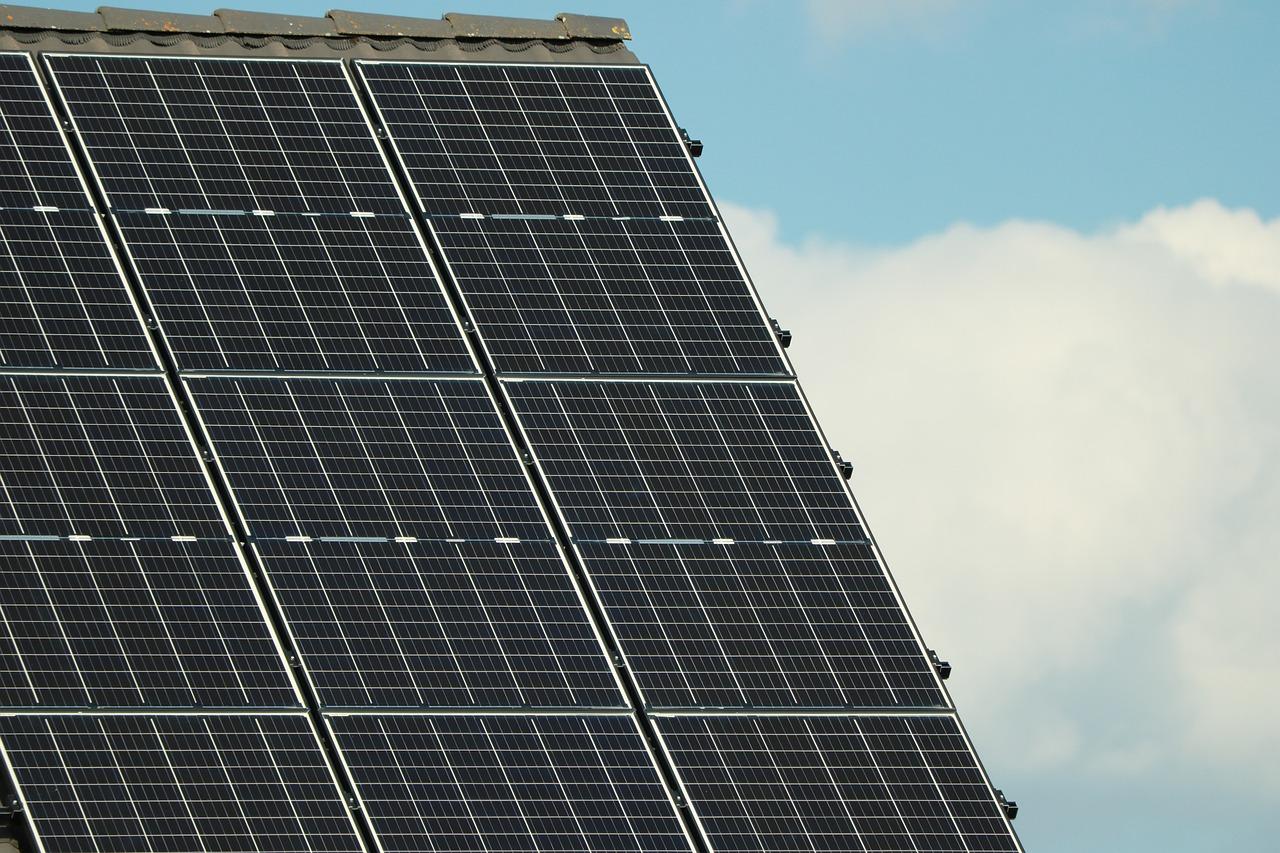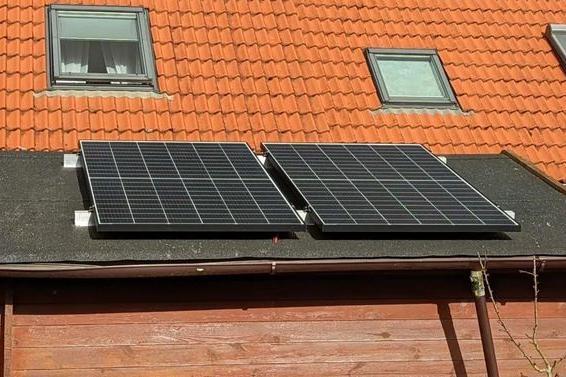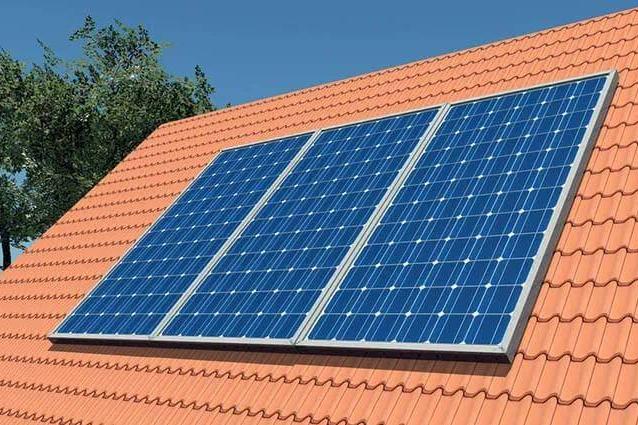Blog & News
Solar obligation: all federal states at a glance (2024)

The federal government wants to promote the expansion of solar energy on private rooftops. However, the solar energy requirement is a matter for the individual states, which is why each state has its own regulations. We explain what the solar energy requirement is, when it applies, and which rules apply in each state.
What does solar obligation mean?
Solar obligation, also solar Construction obligation describes the legal requirement for the installation of photovoltaic or solar thermal systems. This obligation is intended to help accelerate the expansion of renewable energies and make Germany climate-neutral by 2045. Therefore, many federal states have had an obligation to install photovoltaic or solar thermal systems since 2022 or 2023.Installation of PV systems for new buildings or roof renovations. Some federal states have not yet agreed on a requirement, but have plans to introduce it.
Germany’s goal is Climate neutrality by 2045. By 2030, the country aims to phase out coal-fired power, and 80% of its electricity needs will come from renewable energies. To achieve this, Germany is focusing on solar energy, in addition to wind power. However, photovoltaic capacity will need to quadruple to achieve this.
Currently, around 55 gigawatts of solar power are produced in Germany, 200 gigawatts are the goal. An increase of approximately 15 gigawatts annually would be necessary to reach the 200 by 2030. To put this in perspective: 5.2 gigawatts of photovoltaics were installed in Germany in 2021. By September 2022, this figure had already reached about 5 gigawatts, which definitely represents an increase. The solar mandatory system is intended to increase this even further.
Compare photovoltaic offers now and save 30%!
Take 60 seconds and fill out a short form. We will connect you with up to five verified specialist companies in your region. The comparison is free and non-binding.
When does the solar obligation apply?
The solar energy requirement for private residential buildings already applies in some federal states, and will soon be implemented in others. The states differentiate between New buildings and Roof renovations. You can get an overview in our table:
| Countries with solar obligation | for new construction | for roof renovation |
| Baden-Württemberg | May 2022 | January 2023 |
| Berlin | January 2023 | January 2023 |
| Bremen | July 2025 | July 2024 |
| Hamburg | January 2023 | January 2025 |
| Lower Saxony | January 2025 | January 2025 |
| North Rhine-Westphalia | January 2025 | January 2026 |
| Schleswig-Holstein | January 2025 | / |
Solar obligation in Baden-Württemberg
The solar obligation for New buildings in Baden-Württemberg exists for residential buildings since May 2022 and for non-residential buildings Since January 2022, new buildings must be equipped with either a photovoltaic or a solar thermal system. Since January 2023, the solar requirement also applies to roof renovations. Roofs must be equipped with a PV system.
You can find the law here.
Solar obligation in Hamburg
Hamburg already issued a legal regulation in 2020, according to which every new building, whether residential or non-residential, must be equipped with a photovoltaic system. For existing buildings whose roofs are being completely renovated, the solar requirement will apply from January 2025.
The regulation of the city of Hamburg can be foundhere.
Solar obligation in Berlin
From January 2023, solar energy will be mandatory in Berlin for New buildings, the commercial should be used, as well as for New residential buildingsIn addition, owners of existing buildings are required to install a PV system during major roof renovations. Alternatively, a solar thermal system or a system on the building facade can be installed.
The Berlin Solar Law can be found here.
Solar obligation in Bremen
In June 2022, the Bremen State Parliament approved the introduction of a solar obligation for New buildings The solar energy requirement will apply to all new buildings, regardless of whether they are residential or commercial, starting in May 2023. Existing buildings undergoing comprehensive roof renovations will also be affected by the solar energy requirement.
A draft law is currently being drafted by the responsible building and environmental authority before the solar requirement can come into force in Bremen, so it is not yet in effect. Further information on the implementation of the solar requirement in Bremen can be obtained from the responsible authority as soon as the draft law is available.
Solar obligation in Hesse
Hesse introduces a solar obligation only for state-owned existing buildings and new buildings In November 2022, the new "Hessian Energy Act" was passed. Roof areas must be covered proportionally with photovoltaic systems. Furthermore, photovoltaic systems are also mandatory for new state-owned parking lots with more than 35 spaces, as well as non-state-owned parking lots with 50 or more spaces. Exceptions are provided.
Further information on the implementation of the solar obligation in Hesse can be obtained from the responsible authority.
Solar obligation in Lower Saxony
In Lower Saxony, the solar obligation has been in force since January 2023 for Commercial real estate with a roof area of over 75 square meters. At least half of the roofs must be equipped with photovoltaic systems. When planning new residential buildings, developers must also ensure that solar systems can be retrofitted. Starting January 2025, the solar requirement will apply to all new buildings and roof renovations.
The current draft law can be found here.
Compare photovoltaic offers now and save 30%!
Take 60 seconds and fill out a short form. We will connect you with up to five verified specialist companies in your region. The comparison is free and non-binding.
Solar obligation in Rhineland-Palatinate
In Rhineland-Palatinate, there is no solar energy requirement for residential buildings. Commercial buildings However, for buildings with more than 100 square meters, this requirement has been in effect since January 2023. 60% of the suitable roof areas of commercial buildings must be equipped with photovoltaics. The same applies to new covered parking spaces with 50 or more spaces. As an alternative, a solar thermal system can be installed.
The state law on the installation of solar systems can be found here.
Solar obligation in Schleswig-Holstein
Schleswig-Holstein has a solar obligation for New construction of non-residential buildings introduced from January 2023. This also applies to Roof renovations of at least ten percent of the roof area of non-residential buildings. Parking spaces From 100 parking spaces upwards, solar panels will be required for all roofs.
However, it is unclear whether this solar requirement will apply only to commercial buildings or also to residential buildings. Further information on the solar requirement in Schleswig-Holstein can be obtained from the responsible authority.
Solar obligation in Bavaria
There is currently no solar energy requirement in Bavaria. In July 2020, Markus Söder announced a solar energy requirement for commercial buildings starting in 2021, and for private buildings starting in 2022, but it has not been implemented.
The Bavarian Ministry of the Environment has only presented a draft for a new climate protection law that would require photovoltaics on the roofs of government buildings. However, the draft still needs to be developed into a bill and then adopted, which could take some time.
Solar obligation in North Rhine-Westphalia
The solar obligation in North Rhine-Westphalia has been in force since January 2022 and states that new and covered Parking spaces Non-residential buildings with more than 35 parking spaces must be equipped with photovoltaic systems. A solar energy requirement is planned for commercial buildings by January 2024 and for new private buildings by 2025. Starting in 2026, solar energy requirements will apply to roof renovations of all building types.
More information about the current law can be found in theState building regulations and the planned solar obligation in Coalition agreement between CDU and Greens.
Solar obligation in Saxony
There is currently no solar obligation in Saxony. Energy and Climate Program The 2021 draft bill states that a solar energy requirement is to be examined, but a cabinet proposal is still pending. However, Environment Minister Wolfram Günther wants to ensure that solar systems will soon be mandatory for new public and commercial buildings. These include schools, daycare centers, town halls, and government buildings. Industrial buildings, commercial properties, and parking lots are also under discussion.
Federal states without solar obligation
In the following federal states there is no solar obligation for private residential or commercial buildings:
- Bavaria
- Brandenburg
- Hesse
- Mecklenburg-Western Pomerania
- Saarland
- Saxony
- Saxony-Anhalt
- Thuringia
How much does the solar obligation cost?
The solar obligation means additional costs for builders of new buildings and roof renovations of 10,000 to 16,000 €That's how much a private PV system on your roof costs. However, the federal government, as well as the states and municipalities, offer various funding options to reduce these costs. For example, there's a low-interest loan available from KfW.
The major cost advantage of owning your own solar system, however, is that you save on electricity bills and even receive money for the electricity fed into the grid. Therefore, photovoltaic systems on residential buildings pay for themselves on average after just ten years, making them a sound long-term investment.
Can we expect a nationwide solar requirement?
There is currently no nationwide solar mandate. However, plans for it were outlined in the last coalition agreement. Unfortunately, more detailed information is not yet available. However, a nationwide solar mandate is essential, especially if Germany wants to achieve its climate targets by 2030 and climate neutrality by 2045.
Many roofs in Germany are well suited for a PV system. EUPD Research In April 2021, the Federal Institute for Energy and Climate Protection calculated an untapped photovoltaic potential of 89% for new and existing buildings combined for the whole of Germany. However, whether this will actually become mandatory nationwide remains uncertain at this point. Regulation at the federal level would have the advantage of ensuring uniform measures across Germany. This would allow for the expansion of renewable energies much faster and more easily.
Conclusion
The solar energy requirement is an important measure to advance the expansion of renewable energies in Germany and achieve the goal of climate neutrality by 2045. However, the implementation of the requirement is a matter for the individual states, which is why each state has its own regulations. Some states have already introduced a solar energy requirement for new buildings and/or roof renovations, while others are still in the planning stage. The goal is to increase the share of renewable energies in electricity demand to 80% by 2030, which requires a quadrupling of photovoltaic capacity. The solar energy requirement is intended to help accelerate the expansion of solar power.























